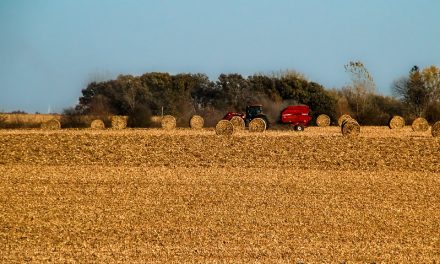Every so often a reminder crops up that Canadian farmers are definitely not the same wherever you go, at least not politically.
They're all in the business of feeding us, raising livestock and growing crops. But when it comes to regional characteristics, they're about as similar as the Toronto Maple Leafs and the Calgary Flames.
Sure, they both play hockey. But that's where it ends.
And in agriculture, that's the way it is heading into today's federal election.
In Western Canada, Prime Minister Stephen Harper and his federal Tories can do no wrong, to the point of absurdity. Despite one of the most divisive feuds in recent memory among western farmers over the Tories' plan to emasculate the Canadian Wheat Board, with Alberta way on one side and Saskatchewan far on the other, farmers say they like the Tories.
Really like them, in fact . . . or at least, they did. An Ipsos Western Canadian online poll in late August and early September showed almost 60 per cent of the 850-plus farmers who responded said they'd vote Conservative.
"Tories on the road to winning farm vote," said a front-page headline in the Oct. 2 edition of The Western Producer, the prairies' leading farm weekly.
It's hard to explain, even in the normally Liberal-unfriendly farming west. Perhaps it's a result of the general economic jubilation in western Canada, because otherwise, western farmers have been split on the Tories. Even with The Canadian Wheat Board and the Harper government at each others' throats, pitting farmer against farmer, the Liberals managed just 17 per cent of western Canadian farmers' support, with the NDP at 10 per cent and the Greens at seven per cent.
Shift your focus now to eastern Canada, and witness the table pounding last week by a group called the Ontario-Quebec Grain Farmers Coalition.
They heap praise on the Liberals and the Bloc Quebécois for speaking directly to farmers during the 2008 election campaign. They say both parties back the all-important matter of regional flexibility — that is, allowing the provinces to use federal support in ways that meet their producers' needs, rather than having to adhere to a script from Ottawa.
It's a tipping point for farmers. Federal agriculture and agri-food minister Gerry Ritz supported regional flexibility when a federal program called AgriFlex was revealed in September.
As well, flexibility is mentioned in the Conservative platform document, The True North Strong and Free.
But lately, Ritz annoyed farmers when he balked at confirming the provinces could act independently. "The devil is in the details," he said. That was a red flag to farmers. Trust was lost.
And there's more. The coalition says it's disappointed the prime minister didn't mention any measures to protect family farms in his speech that explained the Conservative platform.
The farmers claim they're once again feeling financial pressure as crop prices start to slide. Indeed, returns from lofty grains and oilseeds have fallen 40 per cent.
"Harper is sending mixed messages to farmers," says coalition vice-president Walt Charbonneau.
"We are facing an economic crisis and price collapse that could devastate the family farm.
"We deserve a clear, direct message from the prime minister that he intends to put his word behind regional flexibility."
He better hurry. Thanksgiving weekend is and was a perfect time for politicians to sing farmers' praises.
We'll find out shortly whether these holiday messages were weighty enough to placate eastern grain farmers and their powerful lobby.
The prime minister needs to be exceptionally clear, collegial and persuasive. Even then, given the climate surrounding these farmers, convincing them he should be their choice will not be easy.


